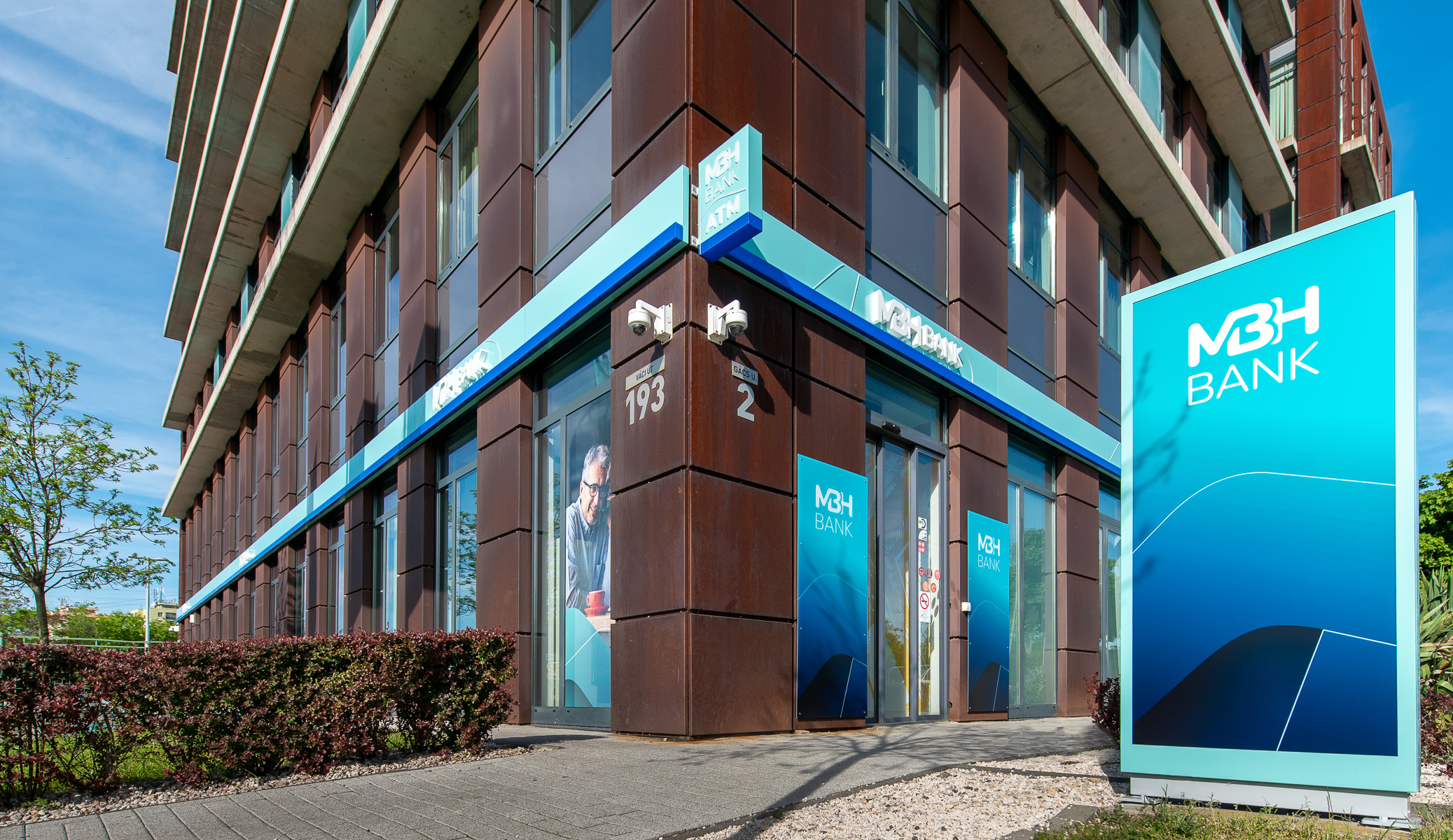Global M&A Deals Down by 1/5, Hungary Does Even Worse
.jpg)
Balázs Sahin-Tóth, Counsel at Allen & Overy Kádár Ügyvédi Iroda in Budapest (Allen & Overy Budapest)
“Mostly macro negative circumstances” cut global M&A activity by more than one-fifth; in Hungary, the slump is even worse, according to an annual Allen & Overy analysis.
Hit by “mostly macro negative circumstances,” including high interest rates, credit difficulties, regional conflicts, the volatility of energy prices and uncertainties in capital markets, the value of global corporate mergers and acquisitions deals fell away in 2023, tumbling some 22% on the previous year, Balázs Sahin-Tóth, counsel at law firm Allen & Overy Budapest, said in a presentation to clients on Feb. 8.
Given that 2022 itself was already “not such a great market,” it is clear last year’s results marked a severe downturn in deals across the globe.
In pure numbers, the total value of deals fell from just over USD 3.42 trillion in 2022 to just over USD 2.65 tln last year, while the recorded numbers shrank from 58,000 to 55,000, Sahin-Tóth said, based on London Stock Exchange Group (LSEG) data.
So far, so miserable, but the picture was even bleaker for Central Europe, particularly Hungary. Indeed, the regional deal value almost halved to USD 21.5 billion last year, while Hungary effectively fell off the radar, with just 67 deals worth a mere USD 156.7 million, a paltry 5% of the USD 3.24 bln in 2022 from 89 deals.
As Sahin-Tóth emphasized, the 2022 total had been boosted by the extraordinary one-off sale of Vodafone Magyarország to a Hungarian investor group for USD 1.78 bln.
Occasional Player
But while this demonstrates, as he put it, “how Hungary remains a strong market for occasional large transactions, but with far less sustained or predictable performance than other CEE markets,” it still represents a shocking reduction in activity last year.
Another cause, which also negatively impacted the global figures, is regulatory concerns, the increasing interference by governments jittery about acquisitions in what they view as strategic companies, especially those involving foreign takeovers.
“This January [...] we counted 111 jurisdictions worldwide which have some kind of FDI approval regime in place,” Attila Kőmíves, counsel and antitrust specialist at Allen & Overy Budapest, told clients.
Indeed, the regulatory regime within the European Union became tighter only last October when the EU’s Foreign Subsidy Regulation entered into force. This change alone has already triggered some 50 merger notifications, Kőmíves noted.
Such approvals introduce delays and risk to deal closures, deterring potential buyers. However, in Hungary’s case, many potential target companies are too small to meet the threshold values of the more stringent EU requirements.
However, the regime is further complicated by having to submit deals for approval to both the Ministry of Economy and the Prime Minister’s Cabinet Office, sometimes resulting in “two decisions in conflict with each other,” Kőmíves said.
Unexpected Gov’t Decisions
Compounding the problems, as Sahin-Tóth pointed out, are unexpected government decisions, illustrated last December, when it granted the state the pre-emption right to buy solar power plants in case of a potential sale.
“This is a big question mark and a cause for concern,” he said. (Editor’s note: see separate box.)
The Hungarian market is not all gloom and doom, however. Sahin-Tóth says that, given global concerns, interest is inevitable in companies everywhere operating what he terms the “three D” activities: de-carbonization, digitalization (primarily AI), and de-globalization, or national tendencies to bring operations back within national borders.
In addition, inflation has been falling quickly, allowing an easing of interest rates and bank credit.
Furthermore, the massive falloff in deal activity might not be as bad as the LSEG data implies. Further analysis by Hungary’s Telex website shows that the annual numbers may have been distorted by different dates used to book transactions.
Using data from the Emerging Markets Group EMIS, for example, Telex estimated the top five 2023 deals alone (which included the Vodafone sale booked by LSEG in the 2022 figures) amounted to USD 3.14 bln, giving a totally different picture to the LSEG data.
State Pre-emption Right Over PV Plant Likely to Deter Foreign Investors
“Lawyers are [still] trying to understand this new legislation, but as it stands now, it seems that the government will have about four months to think about and approve transactions, or whether to exercise the pre-emption right,” notes Attila Kőmíves.
For Kőmíves, this causes “a huge uncertainty, and a long period which buyers need to build into the transaction timeline if thinking about buying a solar power plant,” he warns.
Allen & Overy advised CMC, a Chinese company, in the sale of its 100MW solar cell installation near Kaposvár to MVM, the state-owned electricity company, only last year.
Consequently, the Budapest Business Journal sat down with Balázs Sahin-Tóth to try to clarify this decree’s impact.
BBJ: In this sale of the CMC solar unit, did the state use the new pre-emptive rights?
BAT: No, this was a market-driven process. MVM took part in an auction, and they offered the highest price.
BBJ: What are the effects of this pre-emption right?
BAT: Technically, it means if you are a foreign investor buying a Hungarian company holding a solar plant, you have to ask the state whether they want it. And if they want it, they can step in and purchase the assets for the same price and terms as was agreed [between the original bidder and the vendor].
The broader effects are still unknown, but one negative effect could be that, probably, foreigners will be less willing to come and have a look because it costs a lot to do a proper due diligence process. It’s a long, at least half-year, process to get there and sign the share purchase agreement.
So, there is uncertainty at the end that the state can step into a deal that you prepared at substantial costs, let’s say at EUR 400,000-500,000 preparation costs, which you will not recover.
BBJ: There is no recourse to reclaim [the fees]?
BST: No. So that may be a deterrent [to investment].
BBJ: What happens if you build, say, a manufacturing production hall and install a 10 MW array of photo-voltaic cells on the roof, then want to sell the investment later?
BST: That’s a good question! Technically, it is covered by the pre-emption right. It [the decree] says that if any of your activities, be it main or ancillary, includes operating solar plant assets, [it is subject to the pre-emption right].
BBJ: Could the company split off the solar plant from the main business and sell the two operations separately?
BST: In theory, yes.
BBJ: And will this pre-emption right mean companies are less likely to install solar cell arrays at their facilities in the future?
BST: Or not include such activity in their activities as registered by the court. The pre-emption right applies to the sale and purchase of a company with “electricity generation” as a registered activity.
This article was first published in the Budapest Business Journal print issue of February 23, 2024.
SUPPORT THE BUDAPEST BUSINESS JOURNAL
Producing journalism that is worthy of the name is a costly business. For 27 years, the publishers, editors and reporters of the Budapest Business Journal have striven to bring you business news that works, information that you can trust, that is factual, accurate and presented without fear or favor.
Newspaper organizations across the globe have struggled to find a business model that allows them to continue to excel, without compromising their ability to perform. Most recently, some have experimented with the idea of involving their most important stakeholders, their readers.
We would like to offer that same opportunity to our readers. We would like to invite you to help us deliver the quality business journalism you require. Hit our Support the BBJ button and you can choose the how much and how often you send us your contributions.











